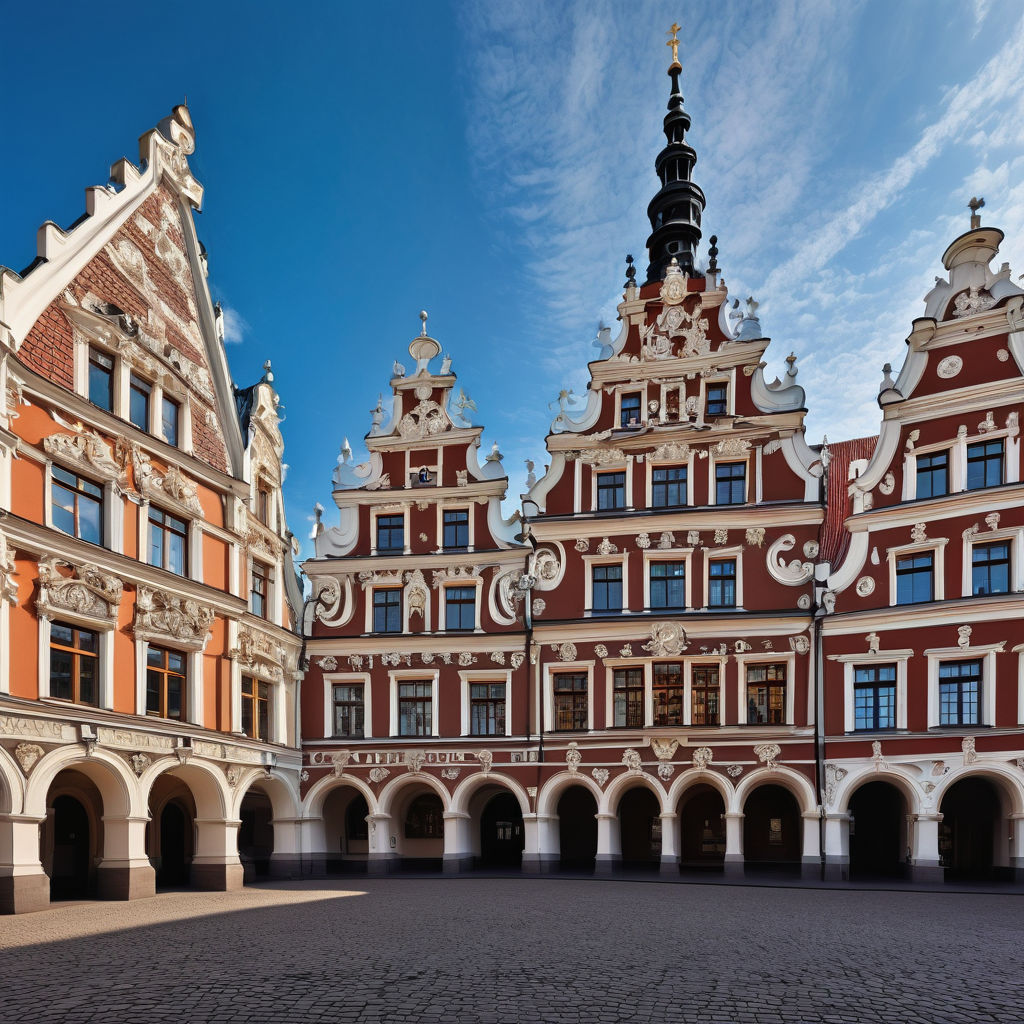Introduction to Latvia: A Baltic Gem
Explore Latvia's Rich Cultural Heritage and Global Engagement

Introduction to Latvia
Latvia, a country in the Baltic region of Northern Europe, is bordered by Estonia to the north, Lithuania to the south, Russia to the east, and Belarus to the southeast. To the west, Latvia has a coastline along the Baltic Sea. The capital city, Riga, is the largest city and a major cultural, economic, and political hub. Other significant cities include Daugavpils, known for its cultural diversity, and Liepāja, a key port city with a rich musical heritage. Latvia boasts a diverse cultural landscape influenced by its history, blending traditional Latvian, German, Russian, and Scandinavian elements. Latvia's cultural heritage is deeply rooted in its folk traditions, music, and dance. The Latvian Song and Dance Festival, held every five years, is a testament to the country's dedication to preserving and celebrating its cultural identity. Traditional crafts, such as weaving and pottery, are still practiced, and Latvian cuisine features dishes like rye bread, grey peas with bacon, and smoked fish, reflecting the country's agricultural and coastal resources.
Cross-national and Cross-cultural Understanding
Latvians generally perceive and engage with other cultures with openness and curiosity, shaped by their country's historical interactions with various nations and peoples. This openness is reflected in numerous cultural exchanges, educational programs, and international partnerships that promote cross-cultural understanding. Cultural exchanges play a vital role in fostering cross-cultural understanding in Latvia. Events such as the Riga International Film Festival and the Positivus Festival attract artists and audiences from around the world, promoting cultural exchange through film, music, and art. These festivals provide platforms for showcasing Latvian culture while embracing global influences. Educational programs in Latvia emphasize global awareness and cross-cultural understanding. Schools and universities incorporate multicultural perspectives into their curricula, encouraging students to appreciate and respect diversity. Institutions like the University of Latvia and Riga Technical University collaborate with international partners to facilitate student and faculty exchanges, enriching the educational experience and fostering global connections.
Interactions and Social Dynamics
Typical interactions between Latvians and foreigners are characterized by politeness, respect, and a strong sense of community. Social behaviors in Latvia reflect a blend of traditional customs and contemporary influences, emphasizing courtesy, hospitality, and communal living. Communication styles in Latvia are generally formal and reserved, especially in initial encounters. Latvians value directness and honesty in conversations. Latvian is the official language, but Russian is also widely spoken, particularly in urban areas. English is commonly used among younger generations and in business settings. This multilingualism facilitates interactions with tourists and expatriates, making it easier for them to integrate into the local community. Cultural norms in Latvia place a strong emphasis on family values, respect for elders, and community involvement. These norms create a welcoming and inclusive atmosphere for foreigners, who often find it easy to adapt to the local way of life. Public displays of affection are generally moderate, reflecting the country’s traditional values, but social gatherings and communal activities are vibrant and inclusive.
Views on Dating and Relationships
Attitudes towards dating and relationships with foreigners in Latvia are generally open and accepting, though influenced by cultural and traditional norms. Latvians recognize the opportunities for cultural exchange and personal growth that such relationships can bring. However, traditional customs and values play a significant role in shaping these views. Family involvement is significant in relationships in Latvia, with elders often playing a crucial role in the approval process. Traditional customs emphasize respect, patience, and the gradual building of trust in relationships. While modern dating practices influenced by global trends are becoming more common among younger generations, traditional values still hold sway in many communities.
Marriage and Family
Marrying a foreigner in Latvia involves navigating both legal and social considerations. Legally, the country has clear regulations governing marriage, including residency requirements and the need for proper documentation. Socially, cross-cultural marriages are generally accepted, though couples may face challenges related to cultural differences and integration. Familial acceptance is a key factor in cross-cultural marriages. Latvian families can be protective, and gaining their approval is often essential for the relationship's success. However, the diverse cultural landscape of Latvia means that many families are already familiar with and accepting of different cultural backgrounds, which can facilitate smoother integration for foreign spouses. Trends in cross-cultural marriages reflect Latvia’s open and inclusive society. Many Latvians who travel abroad for education or work form relationships with individuals from various cultures, bringing back diverse customs and traditions that enrich the local community.